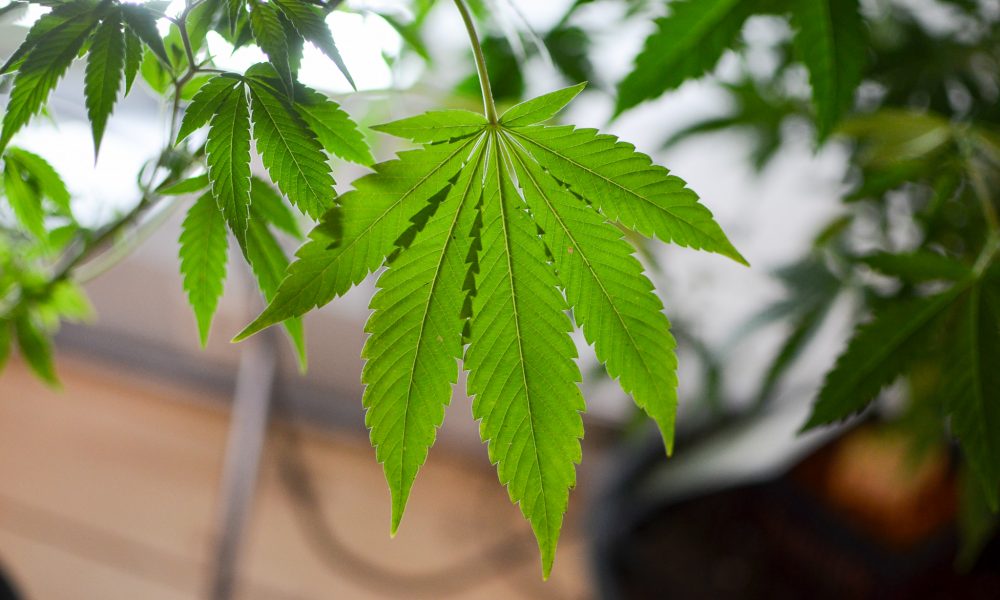The GOP leader of Wisconsin’s Assembly says a limited medical marijuana bill will be introduced next month—though he expects that lawmakers are “going to have to pass it with just Republican votes” because his Democratic colleagues want broader legalization and aren’t willing to accept the scaled-back reform.
In an interview with Spectrum News 1 that was published on Tuesday, Assembly Speaker Robin Vos (R) said that it’s “taken us a while to find a consensus on the Assembly Republican side” to craft a passable medical cannabis bill. But he’s “pretty confident” the votes will be there, even without Democratic support.
“It will come out in January. The sad thing is, I think most of my Democratic colleagues, because they only want recreational or nothing, we’re going to have to pass it with just Republican votes,” he said.
“Now, my goal is I want Democrats to vote for it too, but if they want everything, they usually get nothing,” Vos added. “You got to find that common sense middle ground, so I feel like there’s a whole lot of issues like that.”
While the text of the legislation hasn’t been introduced yet, the speaker recently previewed the proposal, detailing how it will only provide for limited medical cannabis reform, allowing patients with serious conditions such as cancer, post-traumatic stress disorder (PTSD), HIV and chronic pain to access products in pill and oil form.
Vos said it’s being modeled after a conservative medical marijuana law that neighboring Minnesota enacted before adopting more expansive legalization this year.
The GOP leader has previously put forward timelines for the bill’s introduction that didn’t materialize, including an unmet goal to file the legislation by this fall. He’s acknowledged that there’s been frustration around the delay, but he said it was necessary to build a large enough coalition to pass the measure within his caucus.
Democratic legislators haven’t necessarily ruled out passing an incremental medical cannabis bill, though they have pushed for comprehensive legalization and voiced skepticism about the prospect of enacting a seriously restrictive medical program.
Asked about the yet-unseen GOP bill, Assembly Minority Leader Greta Neubauer (D) said last week that Democrats “hope that it’s a serious proposal from our colleagues that addresses the past harms that have been caused by the criminalization of marijuana and that really allows access for the people who need it.”
Vos’s stated concerns about Democratic buy-in also echoes comments from Sen. Mary Felzkowski (R), who is working on separate medical cannabis legislation and said that efforts to push adult-use legalization have complicated Republicans’ work on modest reform.
Sen. Melissa Agard (D), who is sponsoring a recreational legalization bill again this session, has challenged that position, pointing out throughout the year that the GOP majority sets the agenda and could advance medical marijuana reform at any point but have yet to do so.
Agard, who recently stepped down as Senate minority leader to pursue a run for Dane County executive, told Marijuana Moment last week that “the devil is in the details with all policy making,” and “actions speak louder than words.”
That followed remarks from Senate Majority Leader Devin LeMahieu (R), who said this month there’s “potentially” a path to pass a medical marijuana bill in the 2024 session—but it’d have to be strictly limited.
—
Marijuana Moment is tracking more than 1,000 cannabis, psychedelics and drug policy bills in state legislatures and Congress this year. Patreon supporters pledging at least $25/month get access to our interactive maps, charts and hearing calendar so they don’t miss any developments.
Learn more about our marijuana bill tracker and become a supporter on Patreon to get access.
—
Agard has separately urged the public to pressure their representatives to hold a hearing on her reform legislation.
Gov. Tony Evers (D) has also continued to push for legalization, saying last week that the GOP legislature’s inaction means Wisconsin “is losing out to our neighboring states” that have enacted the reform.
“It’s high time we legalize, regulate, and tax marijuana in Wisconsin much like we do with alcohol,” said Evers, who granted another round of pardons, including dozens issued for people with prior marijuana convictions, last month.
The state Department of Revenue released a fiscal estimate of the economic impact of Agard’s legalization bill last month, projecting that the reform would generate nearly $170 million annually in tax revenue.
Also, a legislative analysis requested by the minority leader estimated that Wisconsin residents spent more than $121 million on cannabis in Illinois alone last year, contributing $36 million in tax revenue to the neighboring state.
Despite all that, the conservative legislature has long resisted even incremental reform—stripping marijuana proposals from the governor’s budget requests, for example.
Meanwhile, bipartisan Wisconsin lawmakers said recently they will soon be introducing a bill to decriminalize low-level marijuana possession in the state—an incremental reform that they hope will break the logjam on cannabis policy.
Separately, bipartisan and bicameral Wisconsin lawmakers have also came together to introduce a bill that would create a psilocybin research pilot program in the state.
High School Students Say Marijuana Is Harder To Access Following Legalization For Adults, Canadian Study Shows
Photo courtesy of Philip Steffan.
Read the full article here

